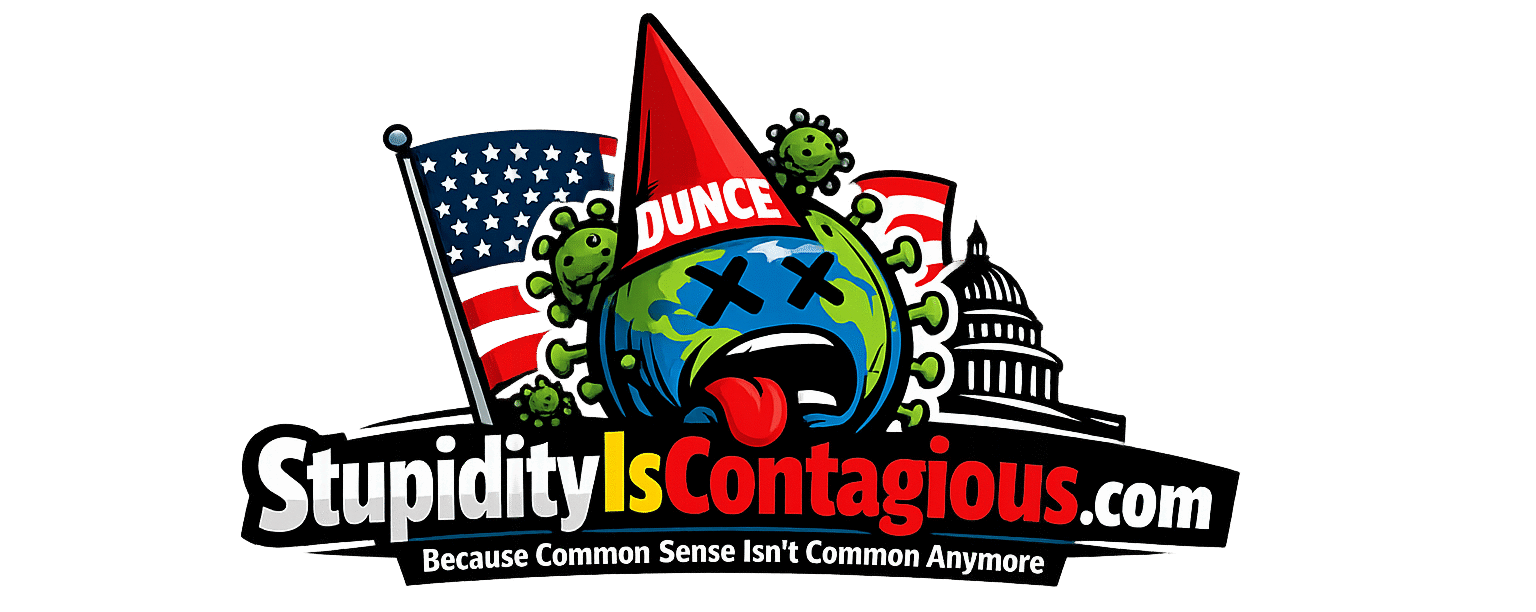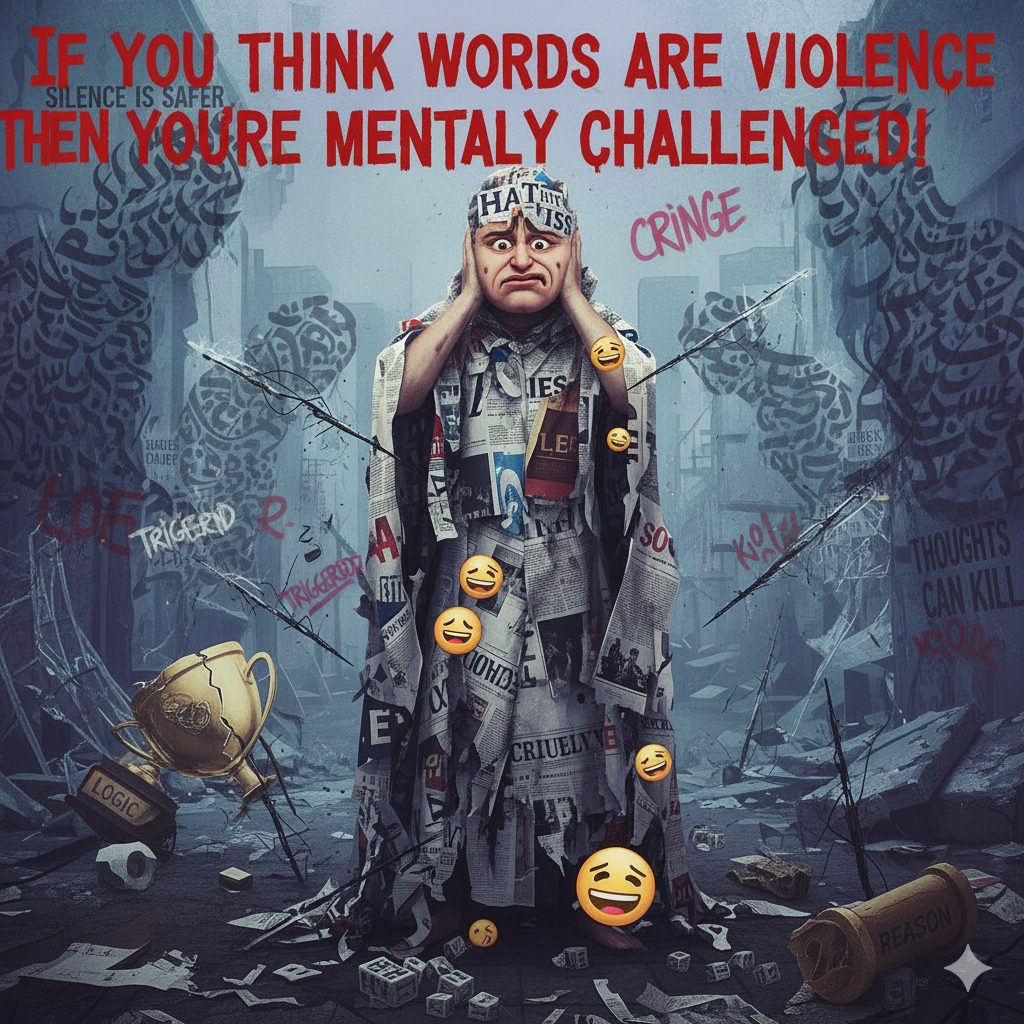Page Contents
Words Aren’t Violence (Unless You’ve Never Been Punched in the Face)
At some point between the invention of Twitter and the rise of the emotional support water bottle, society collectively decided that words aren’t violence except when they are, which apparently is always. According to modern philosophy (mostly found on Instagram infographics and college campus posters), a mean tweet now ranks somewhere between a slap in the face and a chair shot from the WWE.
Let’s clarify something before the internet loses its collective mind: words aren’t violence. Yes, they can sting but unless someone hurls a hardcover dictionary at your skull, you’re safe.
The Participation Trophy of Pain
We’ve entered an era where people genuinely believe emotional discomfort equals physical assault. Someone disagrees with you online? “I’ve been attacked!” Your coworker criticizes your PowerPoint font choice? “That was verbal violence!” Your friend says pineapple belongs on pizza? “That’s hate speech!”
In this new emotional Olympics, everyone gets a gold medal for suffering but the truth is that words aren’t violence. One can be cured with time and perspective while violence may require stitches and possibly a police report.
The Great “Microaggression” Arms Race
Now, don’t get me wrong. Basic decency matters but we’ve stretched the definition of “violence” so far that raising an eyebrow might soon qualify as a hate crime.
If you tell someone they’re wrong, it’s “gaslighting.”
If you ask where someone’s from, it’s “othering.”
If you correct grammar, it’s “linguistic dominance.”
And if you stay silent? That’s “complicity.”
We’ve built a world where everything is violence except, ironically, actual violence. Let me say it again for those in the back: words aren’t violence.
Meanwhile, in the Real World…
Ask any ER nurse, firefighter, or bar bouncer: words are the least violent thing they’ve encountered this week. No one’s ever limped into an emergency room saying, “Doc, someone subtweeted me!”
Sure, words can hurt your pride or bruise your ego but words aren’t violence. You can’t get a concussion from an insult. You can, however, get one from confusing Twitter with reality.
The Echo Chamber of Outrage
Social media has made it fashionable to turn every argument into a trauma narrative. Someone disagrees with your opinion, and suddenly people post emotional “healing journey” updates like they just returned from a battlefield.
Here’s a thought: if your day was ruined because a stranger on TikTok disagreed with you, maybe step outside. Breathe some fresh air. Remember that words aren’t violence. They’re just proof that not everyone thinks like you.
The Real Power of Words
Ironically, calling words “violence” weakens both. Words matter because they aren’t physical. They’re how humans argue, persuade, and avoid clubbing each other with blunt objects. Once we treat words like weapons, we stop listening and when no one listens, real violence isn’t far behind.
How We Got Here
We used to say, “sticks and stones may break my bones, but words will never hurt me.” Now it’s, “sticks and stones are hate symbols, and words are violence.” Somewhere along the line, we confused resilience with repression and replaced thick skin with thin Wi-Fi connections.
But here’s the thing: words aren’t violence. They’re a test of maturity And lately, we’re failing that test spectacularly.
A Modest Proposal
Maybe it’s time to bring back something revolutionary. Thicker skin. Next time someone says something mean, try this radical approach:
- Take a deep breath.
- Log off.
- Remember the person yelling online probably still lives with their parents.
- And if all else fails, picture them trying to parallel park.
Because words aren’t violence. They’re opportunities to practice not being soft.
The Final Word
Words can wound your pride, bruise your ego, and ruin your day but words aren’t violence. Violence puts you in a hospital and the difference matters.
So let’s stop pretending every disagreement is an act of war. Let’s laugh more, argue smarter, and stop turning our feelings into federal offenses because if we keep treating every insult like a tragedy, we won’t need safe spaces. We’ll need helmets just to log onto Twitter.

